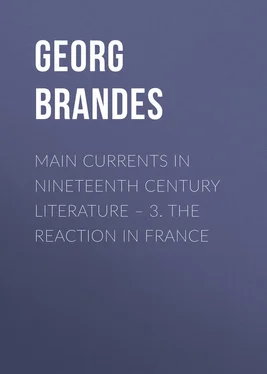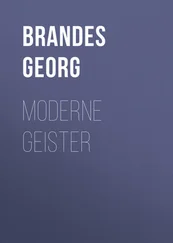"'Tis nothing new; this I have told you oft;
I know you well, you and your evil kind.
And long it was a mystery to me
How Nature could endure you in her realm.
Corrupters of mankind! Even as a child,
My guileless heart shrank from you with distrust —
That honest, fervent heart, that loved the sun,
The cool fresh air, and all the messengers
Of Nature, dimly discerned and great.
For even then I timidly perceived
How ye would take our true love of the gods
And make it serve some baser, selfish end —
And that in this ye would that I should follow you.
Begone! I cannot look upon the man
Who practises religion as a trade;
His countenance is false and cold and dead,
As are his gods."
M. Bernays: Zur Entstehungsgeschichte des Schlegelschen Shakespeare .
"In thy kingly flight, young eagle, thou wilt pierce the thickness of the clouds, and find the way to the temple of the sun-god – else his word, spoken through me, is false."
"I held not my own wreath too precious to crown thee with it to the service of Apollo; but – a better is thy destiny."
"Welcome, sublime thought, that makes of me a god! Things are, because we have thought them. – In the dim distance lies the world; into its dark caverns falls a ray of light, which we brought with us. Why does this world not fall into atoms? Because the power of our will holds it together! – Glad at heart because I have escaped from my chains, I now go boldly forward in the path of life, absolved from those irksome duties which were the invention of cowardly fools. Virtue is, because I am; it is but the reflection of my inner self. – What care I for forms which borrow their dim splendour from myself? Let virtue wed with vice! They are but shadows in the mist. The light that illumines the dark night comes from me. Virtue is, because I have thought it."
Tieck: William Lovell , i. 49, 52, 172, 178, 212; ii. 110.
"Pedantry asked Fancy for a kiss; she sent him to Sin; audaciously but impotently he embraces Sin; she bears him a dead child, by name Lucinde."
"A hunter blew into his horn, and all that he blew the wind carried away."
A. Ruge: Gesammelte Schriften , i. 328, &c.
"Her mind was occupied with household cares —
The washing, and the china, and the cook:
Did I begin to speak of endless love,
She took the bristled clothes-brush in her hand,
And calmly turned me round and brushed my coat.
All this I bore quite placidly, but not
That, sitting, standing, everywhere we went,
Yes, even at concerts, when sweet strains beguiled,
Entwining, clicking, rustling, never still,
Her elbows flying, thumping on her side,
Her knitting-needles vigorously she plied."
"The sacred hymeneal couch had received us; Luna's chaste beams illumined our chamber. Encircled by white arms I lay, praying for Aphrodite's favour, dreaming of the marvellous child that needs must be the offspring of a night like this, the mighty hero who in fulness of time shall see the light. Soft taps upon my shoulder rouse me from my dream; 'tis my sweet bride caressing me; I thank her silently, with tender, meaning smile. One moment later, and my heart is torn by hellish pangs of disillusionment; it is her knitting that is dancing on my back; worse still – she is at the turning of the heel, that point when the most skilful, despite their counting, often blunder."












